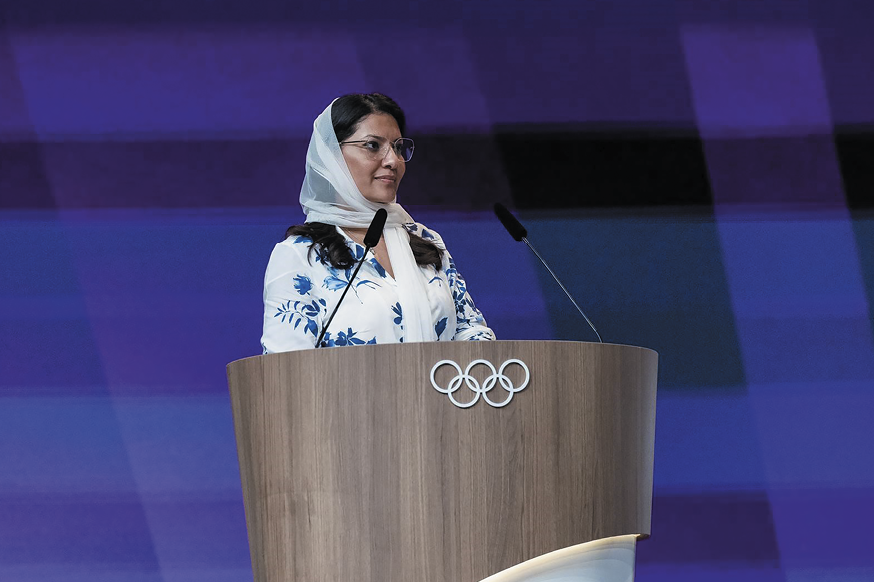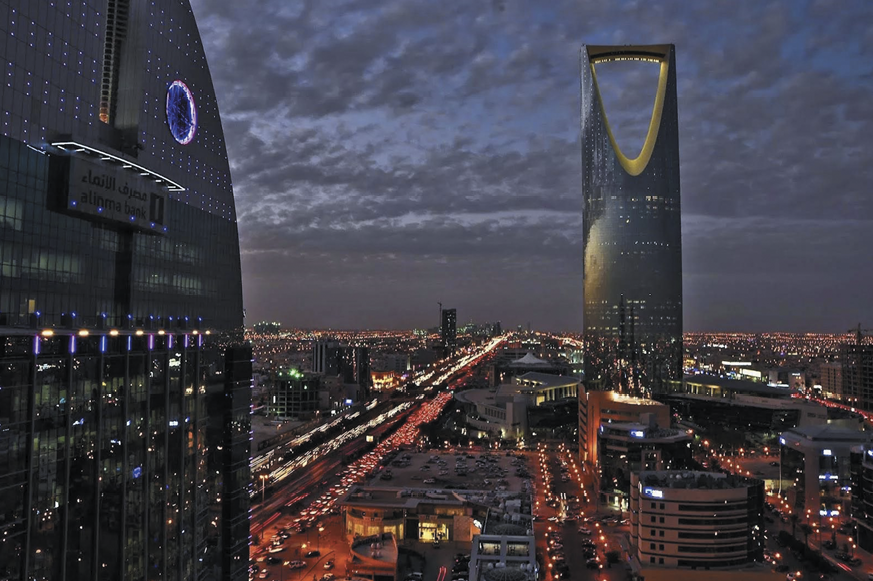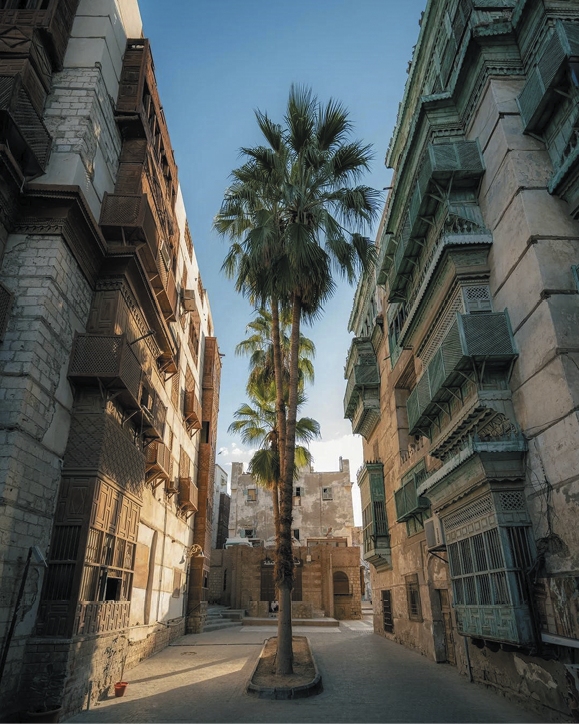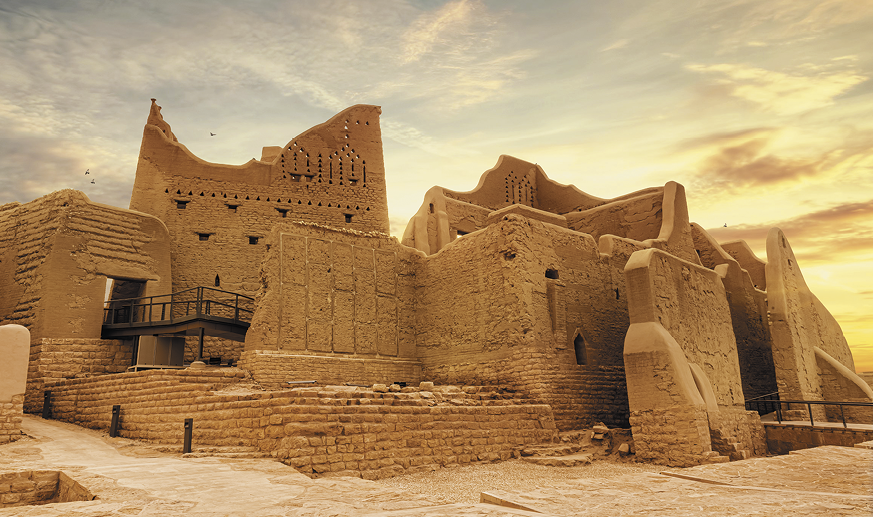- Home
- Media Kit
- MediaJet
- Current Issue
- Past Issues
- Ad Specs-Submission
- Reprints (PDF)
- Photo Specifications (PDF)
- Contact Us
- PRIVACY POLICY
- TERMS OF USE
![]()
ONLINE
![]()
ONLINE

Vision 2030
Editors’ Note
Her Royal Highness Princess Reema Bandar Al-Saud was appointed the Kingdom of Saudi Arabia’s Ambassador to the United States of America on February 23, 2019, by the Custodian of the Two Holy Mosques King Salman bin Abdulaziz. She is the first woman in the country’s history to serve in the role of Ambassador. She presented her credentials to President Donald Trump on July 8, 2019. HRH has dedicated her career to the advancement of women in both the public and private sector. In the private sector, she was the Chief Executive Officer of Alfa International Company Limited – Harvey Nichols Riyadh, a multi-brand luxury retail company from 2007 until 2015. During her time in the private sector, HRH commissioned a study on “Obstacles for Women in the Workplace.” The study set the tone for female inclusion in retail and resulted in the opening of the first workplace nursery in Saudi Arabia. In 2016, HRH left the private sector to begin a career of public service as Vice President of Women’s Affairs at the Saudi General Sports Authority. She focused on developing policies and programs that benefited women and children throughout Saudi Arabia. After a successful year, HRH became the Deputy of Development and Planning. In 2018, she was appointed President of the Mass Participation Federation, making her the first woman to lead a multi-sports federation in the Kingdom, a role that HRH occupied until her appointment as Ambassador. As part of her philanthropic work, she became a founding member of the Zahra Breast Cancer Association in 2007, increasing access to women’s health throughout the Kingdom. Zahra Breast Cancer Association set a Guinness World Record by forming the World’s Largest Human Awareness Ribbon at Princess Noura University in Riyadh in 2015. In 2013, HRH founded Alf Khair, a social enterprise organization aimed at elevating the professional capital of Saudi women through a curriculum developed to enable financial self-sufficiency. HRH is the President of the Women’s Committee and a member of the Board of Directors for the Saudi Olympic and Paralympic Committee. She serves as the Honorary President of the Saudi Special Olympics and is a board member for the Sports for All Federation in the Kingdom. HRH is a member of the International Olympic Committee (IOC) and serves on several commissions including the Gender Equality, Diversity & Inclusion commission; the Sustainability & Legacy commission; and the Coordination for the Games of the XXXV Olympiad Brisbane 2032 Commission. HRH currently serves as the Head of the Executive Committee for the Fashion Commission at the Ministry of Culture. She is a Board Member for Panthera’s Conservation Council and the Future Investment Initiative (FII). Princess Reema is the Founder of Catmosphere, an organization focused on interconnected well-being and big cat conservation. She is the Chair of Kayanee, a PIF lifestyle company focused on female well-being. Most recently, HRH founded WAVE, an initiative powered by FII focused on ocean regeneration within a human generation. HRH received a BA degree in Museum Studies from George Washington University and an honorary doctorate from Marymount University.

HRH Ambassador Reema Bandar Al-Saud at the
International Olympic Committee Session
giving a presentation on Saudi Arabia for the
ESports Olympics
Will you highlight your career journey and what led to your role as Ambassador?
I guess you could say that public service is in my DNA. My father was also the Saudi Ambassador to the United States. He is one of the most renowned and influential diplomats in history. From him, I learned about the importance of diplomacy, the critical need for strong international alliances, and the power of ideas and policies to make the world better, safer, and more prosperous. I have been fortunate to have worn many different hats throughout my career. I’ve worked in both the public and private sectors. I would say the one common thread in my career is that I wholeheartedly believe in the advancement of women. Each role I take, I try and ensure that principle is at the soul of my role.
I started in the private sector and was the CEO of Alfa International, a multi-brand luxury retail company. A large part of our company’s mission was the advancement of women, and we took several important steps to fulfill that mission, including a study on “Obstacles for Women in the Workplace” which set the tone for female inclusion in retail and resulted in the opening of the first workplace nursery in Saudi Arabia.
In 2016, with the launch of the Crown Prince’s Vision 2030, our national transformation program, I answered the call to public service and began as Vice President of Women’s Affairs at the Saudi General Sports Authority. I was so fortunate to join public service at a time of so much positive momentum. I focused on policies and programs that benefited women and children throughout Saudi Arabia. In 2018, I became the Deputy of Development and Planning, followed by becoming President of the Mass Participation Federation, the first woman to lead a multi-sports federation in the Kingdom, before being named Ambassador in 2019, and proudly serve as the first woman in Saudi Arabia’s history to serve as Ambassador. We now have several female ambassadors and women diplomats serving in our diplomatic corps.
There has been a lot of change in Saudi Arabia in recent years. Will you highlight what is happening in the Kingdom?
Today, change in Saudi Arabia is a constant. There has been more change and reform over the past eight years than in the previous eighty. Our transformation began with Saudi Arabia’s Vision 2030, the Kingdom’s roadmap to the future. Launched by Crown Prince Mohammed bin Salman in 2016, Vision 2030 is a bold and ambitious plan to transform and modernize Saudi Arabia economically, socially, and culturally. It is a plan to unlock the Kingdom’s vast potential by creating a diversified, innovative and world-leading nation – and it is working. In the eight years since the Vision’s launch, Saudi Arabia has witnessed both unprecedented change and remarkable growth. Vision 2030 builds upon Saudi Arabia’s rich history, heritage, and culture, its strategic location and economic strength. Designed to free the Kingdom from its dependence on oil exports, the Vision has ushered in a new era of economic diversification and opportunity, driven by investment into key strategic sectors. It has delivered a wave of reforms that have transformed society empowering women and youth. And it has opened Saudi Arabia to the world by creating an environment in which businesses and investors can thrive and by transforming the way Saudi citizens live, work, and play with sweeping social reforms.
Equality and inclusion lie at the heart of Vision 2030, which is building a vibrant society able to offer new opportunities, especially for women. Today, Saudi women are in charge of their personal and financial futures. Saudi women own more than 300,000 businesses. Every door is open to women, including the traditionally male-dominated sectors, such as the military, firefighting, law and law enforcement. There are even women astronauts. Women in Saudi Arabia now enjoy equal pay. While there’s still work to be done, the recent progress for women is truly profound.

Riyadh, the capital of Saudi Arabia
What do you see as the strengths of Saudi Arabia for foreign investment?
Under Vision 2030, Saudi Arabia is evolving from an economy dependent on oil revenues to one powered by diverse industries and global investment. Saudi Arabia is delivering on the promises of Vision 2030. New industries are emerging and thriving such as tourism, sports, advanced manufacturing, mining, and technology – sectors that are generating the jobs of the future for our youth. Tourism is poised to become a key driver of the Kingdom’s diversified economy. Last year, Saudi Arabia welcomed more than 100 million tourists, and we expect that number to grow to more than 140 million by 2030.
There are more than $1 trillion of investment opportunities for foreign investment in Saudi Arabia today. International companies are attracted to the opportunities that exist in downstream hydrocarbons, mining, clean energy, transportation and logistics, financial services and other areas. And they are further encouraged by recent policy changes such as allowing 100 percent foreign-company ownership and a clear, codified dispute settlement framework as well as existing incentives such as a 20 percent corporate tax – the lowest in the G20. And companies are responding with a growing number of investments in the Kingdom.
There are so many reasons to be optimistic about Saudi Arabia and to tap into the incredible opportunities in a new Saudi economy.
What message would you want business leaders to know about the business opportunities that Saudi Arabia offers?
Simply put, there is no better time or place to invest in Saudi Arabia, and the business world is taking note. In the fourth quarter of last year, foreign direct investment was $3.5 billion, up 16 percent from the third quarter. And we expect to attract tens of billions more in foreign direct investment by 2030.
Saudi Arabia stands at the crossroads of Europe, Asia, and Africa – at the heart of global trade and in a part of the world blessed by natural resources. Beyond petroleum, we offer major sources of critical minerals from tin to tantalum of which we have about a quarter of the world’s reserves – and that is only the beginning. Entire new sectors are taking flight including tourism, entertainment, sports, and more. Saudi Arabia is expanding and growing sustainably in many directions and fast.
We are a young nation – with 60 percent of our nation under the age of 30. Huge numbers of talented young Saudis are entering the labor market, including tens of thousands each year who studied in the United States. And large numbers of women, more than 34 percent of the workforce, are now realizing their full potential in the economy. Our GDP is over $1 trillion now, making us the world’s 17th largest economy. And our non-oil sector reached 50 percent of GDP for the first time last year, a landmark in our diversification from fossil fuels. This will only accelerate as our vast investments in infrastructure, new technologies, and economic transformation bear fruit. Thanks to Vision 2030, our transformation is not only a success for Saudi Arabia, but also for our partners and investors. Saudi Arabia now ranks 17th in global competitiveness, jumping up seven places over the prior year. The Tadawul, our stock exchange, is attracting billions of dollars in foreign investment, in part because of the sweeping reforms that have made it more attractive for foreign investors to be a part of our future.
It’s never been easier to do business in Saudi Arabia.

Al Balad, the historical district of Jeddah, the second largest city
in Saudi Arabia located in its Western Province
How critical is Saudi Arabia’s role in the global economy?
Saudi Arabia plays a critical role in the global economy, primarily due to its significant oil reserves and production capacity. With around 17 percent of the world’s proven petroleum reserves and as the largest producer in the Organization of the Petroleum Exporting Countries (OPEC), Saudi Arabia has a special role in helping balance energy markets and ensure supplies are adequate. Over the years, time and again, the Kingdom has lived up to that responsibility by steering through times of crisis and ensuring that markets remain stable and fair for both producers and consumers.
One of the critical ways that Saudi Arabia has sought to protect and support the world economy is by continuing to be a force for peace and stability in the Middle East region. First and foremost is combating terrorism and extremism. With our partners, we have significantly degraded Al Qaeda and ISIS as terrorist threats. Working with our international partners, we have pursued the men, the money, and the mindset that supports or foments international terrorism. And we continue to work with the international community to bring about an end to conflict that threatens the stability of the region and the world, which is so critical to the global economy.
Beyond energy, Saudi Arabia plays an important role in growing the world’s economy. For example, the Kingdom is playing a leadership role in combating climate change. Vision 2030 is a focus on climate action both domestically and internationally. The Kingdom is leading the development of a circular carbon economy as a means to both promote growth and reduce emissions towards its commitment to work to achieve net zero by 2060. And the Kingdom is charting a pathway to a greener tomorrow through the Saudi Green and Middle East Green initiatives – which act to combat climate change – and projects that reduce land and coral reef degradation and protect wildlife. The Kingdom is stepping up to restore and preserve our global environment for future generations.
Overall, Saudi Arabia’s multifaceted role in the global economy extends beyond oil production and encompasses areas such as finance, trade, infrastructure, technology, and human capital development. The country’s continued efforts to diversify its economy and engage with the global community positions it as a key player in shaping the future of the global economy.
Will you discuss the importance of a strong relationship between the United States and Saudi Arabia?
The founder of the Kingdom of Saudi Arabia, King Abdulaziz, and President Franklin Roosevelt met in 1945 and laid a foundation for U.S.-Saudi relations that would forge an important bond lasting generations. It has been a relationship critical to global economic security, peace, and stability. Over the past 80 years, the relationship has seen the breaking and passing of many storms. But through every phase, it has only grown, deepened, and widened because we are always stronger when we work together, safer when we work together, and more prosperous when we work together.
The relationship is going through an important and historic phase as we try to institutionalize it and lay the foundation of the partnership for decades to come. Today, we are expanding our partnership beyond security and defense cooperation to include technology, sustainable energy, and space, among other areas. More broadly, our strategic visions are aligned. Both the Kingdom and the United States want a secure, stable, and prosperous region. Each is committed to confronting the forces of extremism and destruction, and to advancing stability and prosperity globally.

Salwa Palace at Diriyah’s At-Turaif UNESCO World Heritage Site
What do you tell young people in Saudi Arabia about the future?
Saudi Arabia is a youthful nation, with more than 70 percent of the population under the age of 35. They are our single greatest asset. Young people in the Kingdom are well-
educated, ambitious, and eager to engage with the world. They are among the biggest users of social media and early adopters of technology. This is a population that is very excited about its future – excited about the incredible changes taking place in Saudi Arabia today because the transformation and changes taking place are really about them. It is about unlocking their incredible potential, about having the opportunities to excel and contribute. So, when I talk to young people about Vision 2030 and the transformation that is taking place, I encourage them to not only take advantage of the changes, but to be part of it – to be agents of change – to make their mark – because no part of our society can have a greater impact on the future than the enthusiasm, creativity, and power of our youth.![]()
For more information regarding Saudi Arabia and business opportunities, please contact Saudi Arabia’s Ministry of Investment - https://misa.gov.sa.
For tourism information see the Visit Saudi official website - https://www.visitsaudi.com/en